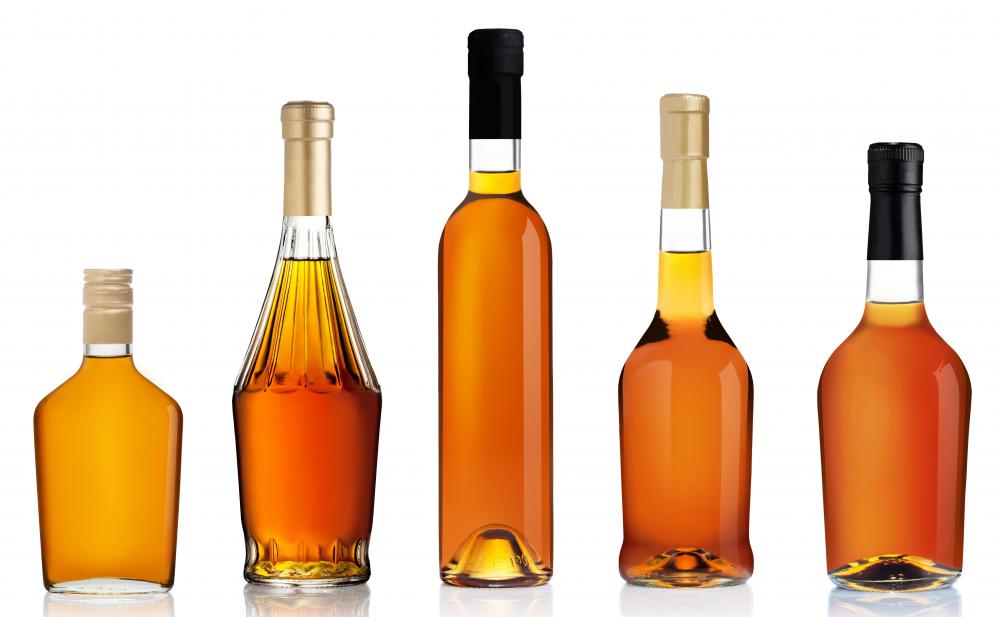At WiseGEEK, we're committed to delivering accurate, trustworthy information. Our expert-authored content is rigorously fact-checked and sourced from credible authorities. Discover how we uphold the highest standards in providing you with reliable knowledge.
What is a Rum Row?
During the Prohibition Era in the United States, a rum row was a line of ships located offshore, just beyond the reach of the law. These ships would transfer their alcoholic cargoes to speed boats and other small craft before leaving to pick up more alcohol. The ships in a rum row were sometimes visible from the coast, especially in regions close to international borders, and the rum row became a very visible part of Prohibition for some Americans.
The term “rum row” is derived from the fact that the earliest ships smuggling alcohol came primarily from the Caribbean with rum. Later, ships carrying whiskey and other alcohol also came down from Canada, but the slang term had been embraced by then, so it became generic. In some communities, the rum row was so ubiquitous that people referred to the lines of houses next to the shore as a rum row as well, and the term lives on in the name for some developments along the Eastern Seaboard of the United States.

Under the Volstead Act, people could not make, transport, or sell alcohol for consumption. However, many Americans were not willing to give up drinking, and they consumed a variety of smuggled and homemade products. Rum rows evolved to take advantage of the demand for liquor in the United States, providing alcohol of varying quality, often at very high prices. A shadow economy with substantial clout developed during Prohibition, with much of the profits concentrated in the hands of a handful of criminal kingpins.
The real danger for ships in a rum row was that the speedboats used to transfer liquor to the shore could be apprehended, causing a loss of cargo and crew members. In the early years of Prohibition, many smugglers managed to evade capture, but as American law enforcement purchased faster boats and developed more skills, this risk increased greatly, resulting in a corresponding increase in the price of alcohol. Improvements in law enforcement also made rum rows more dangerous, as ships increased their arsenals to defend their cargoes.
Ships in a rum row also ran the risk of being attacked by people who wanted to steal their cargo, and piracy, gunfights, and murder were not uncommon, especially in areas where the rum row was tightly controlled by crime bosses. Furthermore, ships not under the control of criminal organizations could be stopped and robbed by key ships in the rum row, making the high seas a dangerous place for some enterprising smugglers.
AS FEATURED ON:
AS FEATURED ON:











Discussion Comments
Its wild to think about naval battles breaking out all over some liquor. I'm sure that there were some pretty dramatic scenes just off the shore and all of it was over rum and whiskey.
I think this just points to how illogical the whole idea of prohibition is. You can take away the supply but you can't take away the demand. Just because there is no booze to be drank doesn't mean that no one wants to drink it. They must have been able to predict that people would get desperate eventually and turn to some pretty crazy means for getting a drink. Who would have predicted piracy though?
I am always amazed when I read stories about prohibition. It is incredible the lengths that people went to just to get a drink. I guess I can't blame them, I like to imbibe myself, but still, some of the tales you hear are just outrageous.
I would like to read a history of prohibition sometimes because I'm sure that the stories I've heard are just the beginning of all the outrageous things that happened. Bootleggers in the 1920s were a pretty ruthless group of guys with a lot of money to make and a lot of pressure from the law. That kind of environment can lead to some pretty wild criminality.
I think I had a few relatives involved in rum running back in the day. At least, that's what I've been told by some of my really conservative relatives told me when I was a kid; those members of the family don't get talked about much these days. The things your family did in the generations before you really stick, both good and bad.
Post your comments